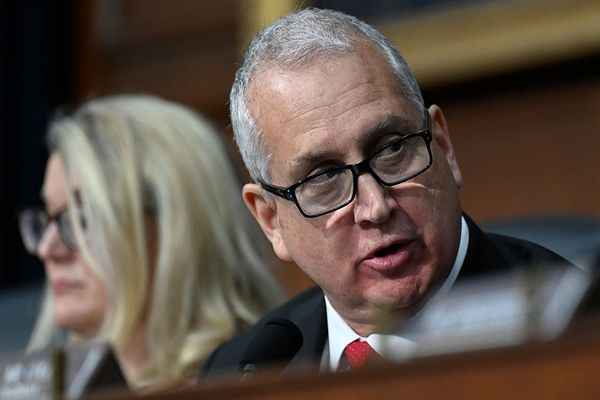
The two doctors who initially assessed Victorian toddler Dio Kemp, who died of sepsis eight days later, have told an inquest there were no signs she had the infection when she first presented at hospital.
Dr Timothy Martin and Dr Tobias van Hest, who were working at Monash Medical Centre’s emergency department when the three-year-old first presented in November 2019, gave evidence at a coronial inquest into her death on Tuesday.
Dio’s mother, Miranda Jowett, told the court on Monday she took her daughter to the hospital on 21 November as she had been suffering from a fever and diarrhoea and had developed a facial rash.
Martin was the first to assess Kemp and diagnosed her with a viral illness causing diarrhoea and urticaria, or hives. He told the inquest he decided Dio should be assessed by a second doctor, Van Hest, due to the toddler’s rash and because she had Down’s syndrome.
“That puts her in a slightly higher category for risk of infection,” Martin said.
In his statement to the coroners court, Van Hest said he agreed with Martin’s diagnosis.
He said Dio “did not have symptoms suggestive of a bacterial infection”, which include a fast heart rate, abnormal breathing, low blood pressure and lethargy.
“In light of this, I formed the view that Dio had no evidence of septicaemia and no red flags or indicators of serious bacterial infection in her presentation,” Van Hest said. “My impression was that Dio presented with a viral illness.”
He said because her condition was believed to be viral and not bacterial she did not require antibiotics.
Martin agreed, saying if doctors treated every child who presented to the emergency department with a fever with antibiotics and admitted them to hospital, it would be “poor medical practice”.
“We wouldn’t have a functional system,” he said.
Martin said if he had “any moderate degree of concern” he would have admitted Dio to hospital and prescribed antibiotics.
The doctors told the inquest that because it was late in the evening they gave Jowett the option of admitting Dio or booking her in for a follow-up appointment with a paediatrician in the morning at Monash’s rapid care clinic. She agreed with the latter option and Dio was discharged.
Jowett has told the inquest that she sought medical treatment for Dio on five more occasions in the days after the initial assessment. Dio died in hospital on 29 November of septic shock.
Van Hest told the inquest it was difficult to hear testimony of how Dio’s illness had progressed.
“As a paediatric emergency physician, it was very difficult hearing Miranda’s evidence yesterday because she actually gave the history in the latter days of the illness of a child that had all the textbook hallmarks of a child with sepsis,” he said.
“She wouldn’t stop crying, she didn’t want to be picked up and she couldn’t support her own weight or weight bear. These are all massive red flags and a very different different picture of the child that was present in the emergency department.”
The inquest, led by coroner Paresa Spanos, will examine if Monash complied with guidelines requiring patients who were readmitted within 72 hours to be reviewed by an emergency department consultant – or, if they were unavailable, two senior registrars. The guidelines also require readmitted patients to have their working diagnoses reevaluated.
The guidelines were introduced in 2018 after two-year-old Lachlan Black died of septicaemia at the Monash’s emergency department in 2014. Lachlan’s death was also investigated by the coroners court.







